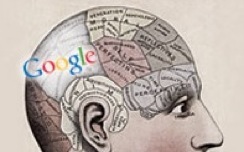Google’s search is so effective at finding information that it’s changed what we choose to remember, according to Friday’s issue of the journal Science.
When we are aware of where to find information, we’re less likely to remember it, something called “The Google Effect” by lead psychologist Betsy Sparrow of Columbia University.
The study asserts we’re not becoming less intelligent but the ubiquitous search engine appears to be changing how we remember things. For many of us, we’re happy to forget rote information, knowing that it can be retrieved using a search engine.
Google’s search engine is amazing considering that it indexes millions of web pages and still provides with you with good results. In June alone, web surfers used Google 11.1 billion times, according to the web site Search Engine Watch.
From what I’ve seen, the search that’s available in a mainstream Help Authoring Tool (HAT) isn’t nearly as effective. And if your users are used to results provided by Google (and who isn’t?), the search in online help is bound to disappoint.
Still, even Google’s search engine has its limits. Earlier in the year, Forbes published an article called “Google Finds No Friend In Facebook As Social Surpasses Search” that states, “Facebook became the most visited site in the U.S. for the first time surpassing Google and Yahoo.” Author Anne Gentle wrote in her blog: “…you are more likely to get useful links by asking your friends and colleagues about certain topics than you are going to get them by searching on Google.” That’s probably why Google just launched Google+, a social networking site that is meant to compete with Facebook.
In any case, the search offered by a HAT could be a lot more accurate and customizable so that writers can control the results offered to users. Who knows? Maybe one day we could make it easy for users to recommend certain topics, like the features found in Facebook and Google+.

 I have worked as a
I have worked as a
Whether your friends can provide better links than Google depends on the topic. If it’s asking what local restaurant is best for authentic Thai food, go with your friends. If it’s asking about transmission frequencies and communication protocols for monopulse secondary surveillance radar systems, ask Google.
I guess it depends on your friends. 😉 But, in general, I agree.
Thanks for your comment!
Thank you for your article and research. I have been following a similar line of research: the ways in which the Internet has changed the way people think and interact. Your article adds confirmation to my hypothesis that online search, email, texting and chatting has been transformative. I posit that online communication forms have not “killed print,” but instead added to the intrinsic perceived value of written communications — i.e. thank you letters. Similarly, let’s consider one person searches Google while another researched printed texts. The Googler marks an article with Favorite status while the other takes written notes. We might see these as equivalent activities. However, the written notes include impressions, ideas and connections that a bookmark alone will not.
Acute memory is a pre-cursor to competence in many fields, especially engineer and science. However slackened memory is but one of the downsides. Another is diminished skills in assimilating knowledge that is a precursor to creative thinking, recognition of nuance, and synthesis. I suspect that the digital universe is leading to fragmented and selective knowledge acquisition, abandoning the centuries old evolved method of knowledge acquisition — primarily though libraries and the books they contain — and ultimately a lessening of competence in what we do and how we understand and relate to the world apart from mankind.